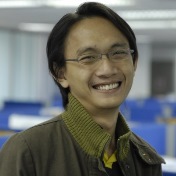
| Speaker | Dr. Wong Chan-Yuan (Senior Lecturer, Department of Science and Technology Studies, University of Malaya) |
|---|---|
| Time | July 23, 2015 5pm-7pm |
| Venue | Lecture Room F, National Graduate Institute for Policy Studies(ACCESS) |
| Sponsor | GRIPS Innovation, Science and Technology Policy Program (GIST) |
| Language | English |
| Fee | Free (Pre-registration required) |
| Document | Presentation Slides (610K) |
The experiences of catch-up in the several economies of Asia-- leapfrogging in Korea, path-creating in Taiwan, and multi-mode with policy experimentation in Malaysia and China -- have generated and are generating a growing body of theoretical models to enrich the earlier theories developed for advanced countries. They show not only the diversity of catch-up strategies that can lead to a successful outcome but also show the evolution of strategies within a single economy as technological capabilities develop. There is, however, one constant running through these different strategies. That is the central role of the government, not only in setting strategic priorities but also in ensuring the necessary policy and institutional support is in place. The strategic models may provide policy lessons for other developing economies in Asia aspiring to follow the path of technology upgrading.
This seminar will provide an overview of catch-up industrialization strategies in East Asia over the past few decades, articulating a theoretical-conceptual change from Akamatsu's Flying Geese Model to a leapfrogging and path creating catching-up model. Within this intellectual context, we will discuss the economic, political and institutional conditions for effective implementation of catch-up strategies (management of state-created learning rents) in South Korea, Taiwan and Malaysia. We then propose a new analytical grid that summarizes the current research on China's catch-up industrialization, explicitly acknowledging China's arguably unique multi-pronged mixed-mode model.
 grips.ac.jp. Registration email must include:
1) your name*, 2) institution*, 3) job title, and 4) contact information (email address or phone number)*.
grips.ac.jp. Registration email must include:
1) your name*, 2) institution*, 3) job title, and 4) contact information (email address or phone number)*.